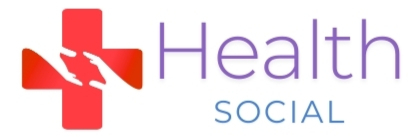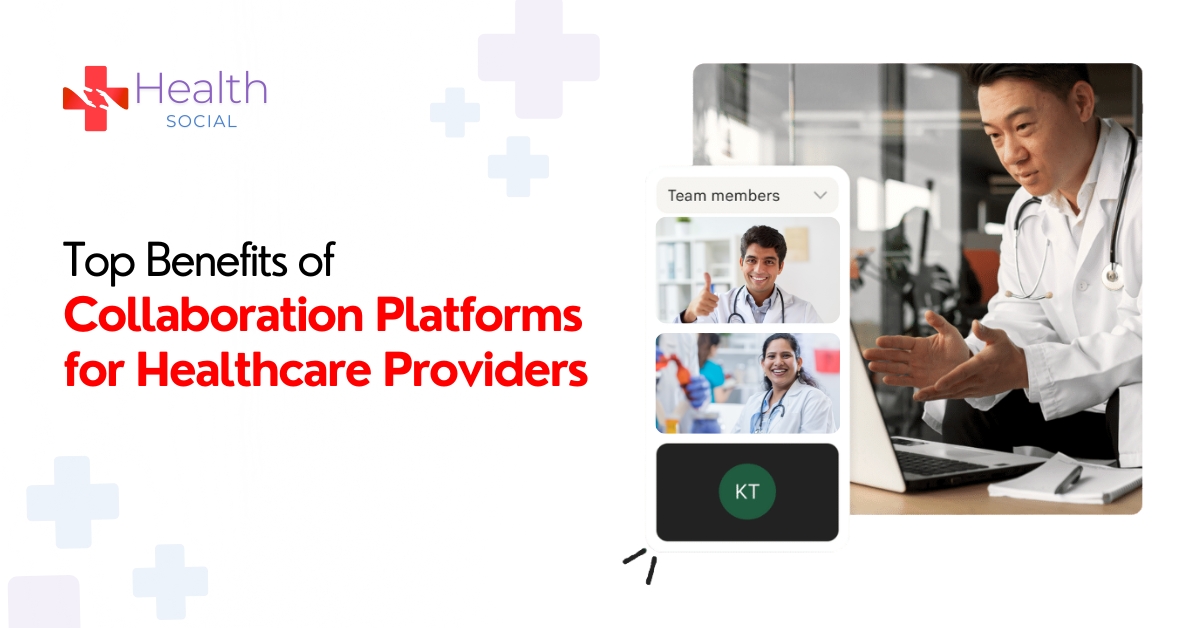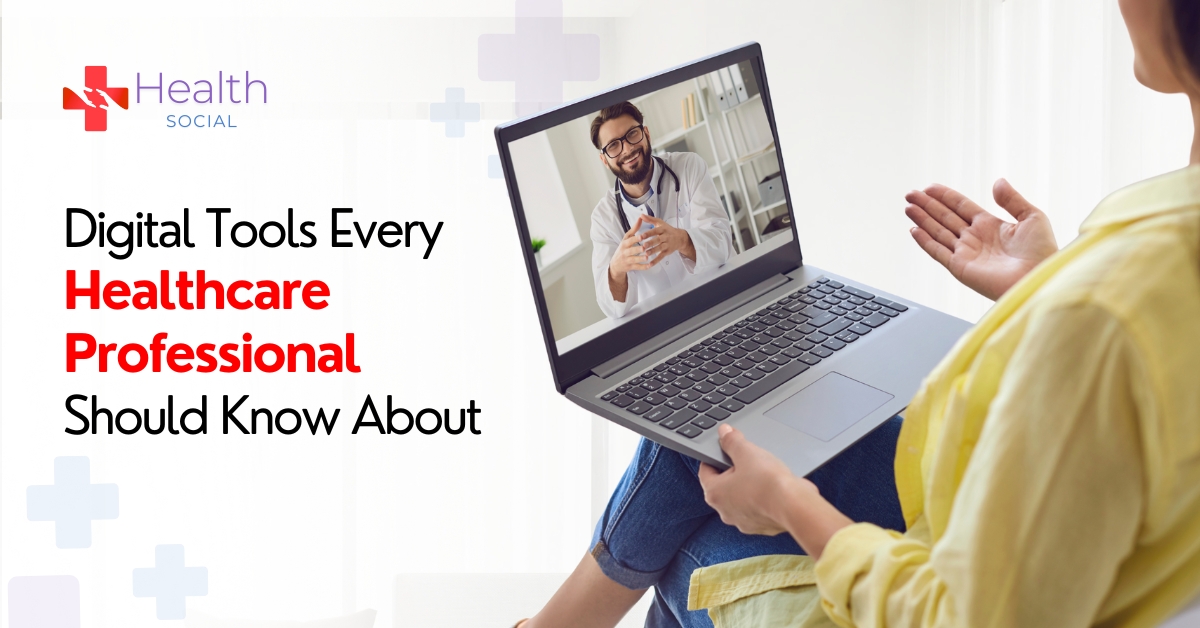Healthcare is changing fast, and along with this change, new partnerships are reshaping the way we think about well-being. In this new era, one collaboration has been getting a lot of attention is the partnership between healthcare providers and social platforms. And that is Health Social, a key player in helping people access better healthcare through technology, communication, and community. This blog explores how Health Social is transforming healthcare, why these partnerships are important, and how they are making healthcare more accessible, personal, and effective.
What is Health Social?
Health Social is an emerging healthcare collaboration platform that blends healthcare with social media and technology. The platform connects patients, healthcare professionals, and health-focused communities in one place. Its purpose is to create a space where individuals can easily share experiences, ask for advice, access resources, and communicate with healthcare providers in real time. This combination of social networking and healthcare services offers a completely new way to manage and improve health, which is why it is gaining so much attention.
The Importance of Healthcare Partnerships
In today’s digital world, healthcare partnerships have become essential. Collaborating with platforms like Health Social enables healthcare providers to enhance the patient experience and improve outcomes. These partnerships encourage better communication between patients and providers, streamline healthcare delivery, and help ensure that care is centered around each patient’s needs.
1. Improved Access to Healthcare
One of the biggest advantages of these partnerships is improved access to healthcare. Many people, particularly in rural or underserved areas, face major barriers to receiving quality healthcare. Health Social helps overcome these challenges so that patients can connect with healthcare professionals remotely. Through virtual consultations, telemedicine, and online health communities, patients can get medical advice and care without needing in-person visits, which makes healthcare more accessible to those who need it most.
2. Patient-Cantered Care
Traditional healthcare often follows a one-size-fits-all model, which can be limiting when it comes to meeting the unique needs of patients. Health Social partnerships focus on offering a more personalized approach to care, which is why they are so important. Using data and insights shared on social platforms, healthcare providers can customize treatments to suit individual patient needs and preferences. For example, a patient managing a chronic illness can join online support groups or access resources that help them understand their condition and treatment options. This focus on personalization, combined with community support, is helping to make healthcare today more effective and meaningful.
3. Fostering Community Engagement
Social media platforms are powerful tools for creating communities, and Health Social follows that example. The platform allows patients to connect with others dealing with similar health issues, giving them a space to share experiences, discuss treatments, and offer emotional support. This is especially beneficial for people living with long-term conditions, mental health challenges, or undergoing lifestyle changes.
A person with diabetes, for instance, can join a support group on Health Social to interact with others who face the same struggles. Sharing and connecting with others can improve emotional well-being, which is just as important as physical health. This is why community engagement through platforms like Health Social is so crucial in today’s healthcare landscape.
The Benefits of Health Social Partnerships
Health Social partnerships offer several benefits to both patients and healthcare providers. Let us dive into how these collaborations are improving healthcare.
1. Enhanced Patient Engagement
Patient engagement plays a crucial role in achieving better health outcomes. Health Social encourages patients to take an active role in their health journey, which is why it is so effective. The platform provides online communities, educational tools, and interactive resources that help people better understand their health conditions.
Healthcare providers partnering with Health Social can send medication reminders, track patient progress, and involve patients more effectively in their treatment plans. Continuous interaction helps patients stay motivated and committed to their health, which leads to better outcomes in the long run.
2. Real-Time Communication with Healthcare Providers
Communication is essential in healthcare, and Health Social helps make it easier. The platform allows patients to connect with healthcare professionals in real time through text, video calls, or chat. This leads to quicker response times, more frequent check-ups, and a chance to address patient concerns more promptly. Then, both patients and healthcare providers save time, as there is no need for in-person visits or crowded waiting rooms.
Healthcare providers benefit from this setup as well, saving time by not needing to schedule in-person appointments and avoiding overcrowded waiting rooms. It is a win-win for both patients and doctors, which is why it is such a game changer in modern healthcare.
3. Promoting Preventative Healthcare
Health Social also plays a major role in encouraging preventative healthcare. Through the platform, users can access helpful resources like fitness guides, nutrition advice, mental health tips, and wellness programs designed to help them stay healthy. So that people can avoid developing chronic conditions, Health Social promotes healthy habits and keeps users informed.
Promoting healthy habits and keeping people informed can prevent chronic conditions, reducing healthcare costs and improving overall quality of life. The platform even sends reminders for health screenings, vaccinations, and regular check-ups to ensure patients stay on top of their health.
Health Social and the Future of Healthcare
Looking to the future, partnerships between healthcare providers and platforms like Health Social will continue to grow. These collaborations will help healthcare systems adapt and meet the changing needs of patients and society.
Expect to see advancements in telemedicine, artificial intelligence, and machine learning, all of which will enhance the capabilities of platforms like Health Social. AI, for example, can analyse data shared on the platform to predict health issues before they occur, allowing providers to intervene early. This is one of the many ways technology will improve healthcare in the future.
Virtual consultations will likely become the norm, allowing patients to receive high-quality care from home. Healthcare will become more integrated, personalized, and data-driven, making it easier for people to manage their health and well-being.
The partnership between healthcare providers and platforms like Health Social is creating a new era in healthcare. This era prioritizes accessibility, personalization, and community engagement, and is fundamentally changing how we think about health and wellness. As these partnerships evolve, we can look forward to a future where healthcare is more inclusive, accessible, and effective for everyone.





